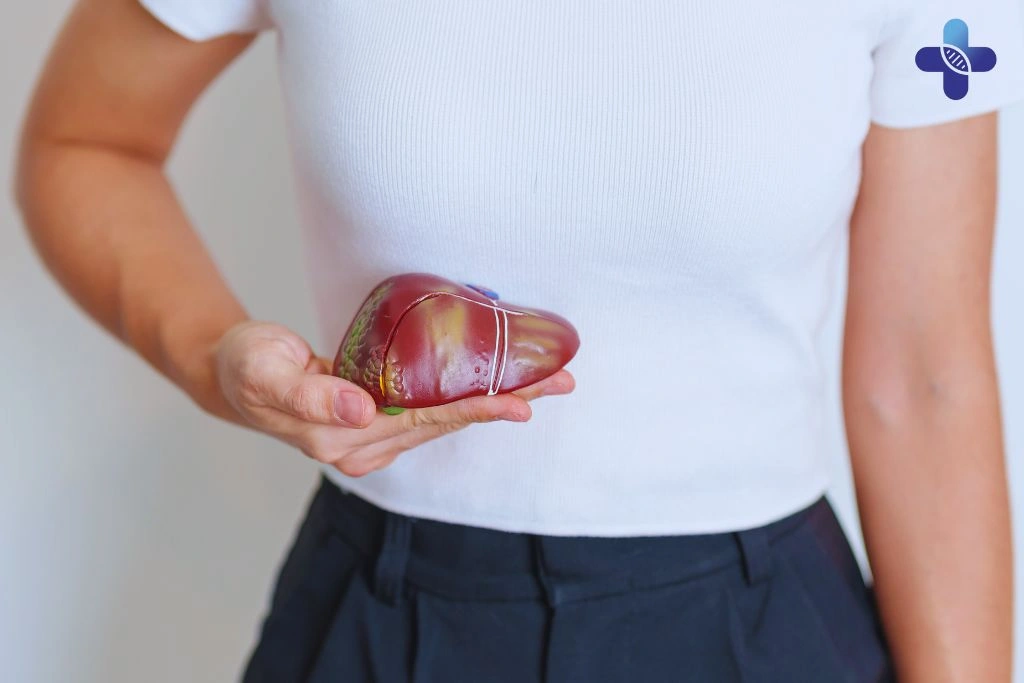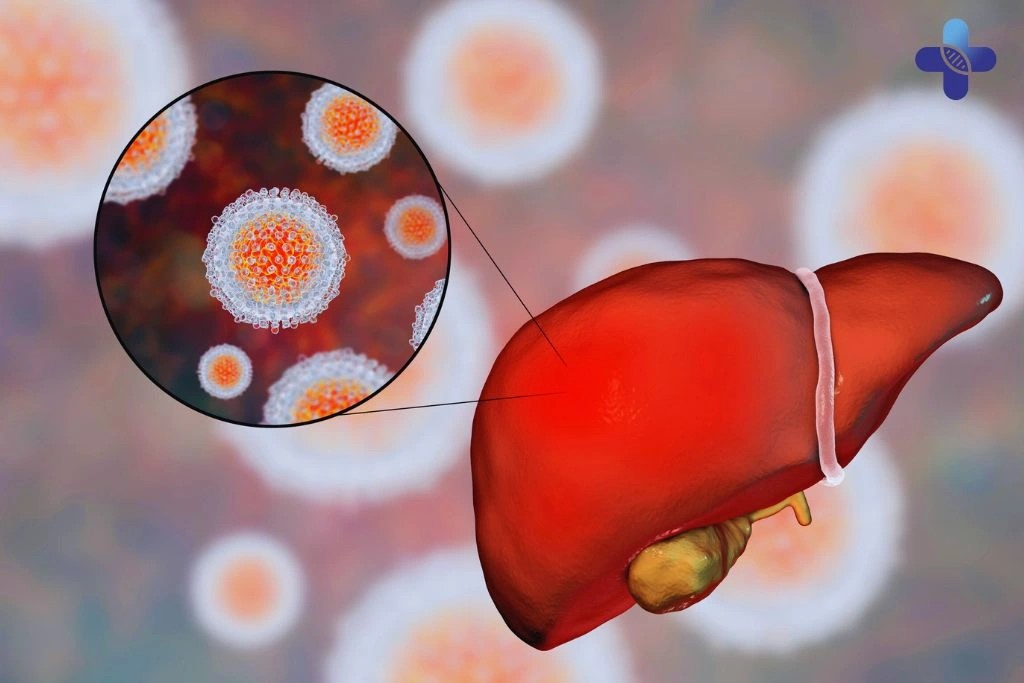Hepatitis B is one of the common diseases travelers and residents may encounter in Bali. As part of the list of common diseases in Bali, it shares risks with illnesses such as Dengue Fever, Rabies, Typhoid, Cholera, and Japanese Encephalitis, posing significant health concerns, particularly for those engaging in activities that involve exposure to bodily fluids. Life Everyouth Bali provides comprehensive medical support, including Hepatitis B vaccination, diagnosis, and treatment to ensure optimal health and prevention for both visitors and residents.

Hepatitis B in Bali: Causes, Symptoms, Prevention Strategies, and Treatment Options
Hepatitis B is a viral infection that affects the liver and is primarily transmitted through blood, unprotected sexual contact, and from mother to child during birth. While it remains a global health concern, proper vaccination and preventive measures can significantly reduce the risk of infection. Travelers and residents in Bali should be aware of transmission risks and take necessary precautions, including vaccination and regular health check-ups. Life Everyouth Bali provides Hepatitis B screening, vaccination, and medical support to help individuals stay protected and manage their health effectively.
Hepatitis B
Hepatitis B is a viral infection that affects the liver and can lead to chronic liver disease if left untreated. It is transmitted through contact with infected bodily fluids, making it a preventable but serious condition. Life Everyouth Bali emphasizes the importance of early detection and vaccination to reduce the risk of infection.
Symptoms of Hepatitis B
Fatigue
Hepatitis B can cause extreme tiredness, making it difficult to carry out daily activities. This fatigue can persist even with adequate rest.
Jaundice
A key indicator of liver dysfunction, jaundice causes the skin and eyes to turn yellow due to an excess of bilirubin in the blood.
Nausea and Vomiting
Many individuals with Hepatitis B experience persistent nausea, which may lead to vomiting and loss of appetite.
Abdominal Pain
Pain or discomfort in the upper right side of the abdomen is common due to liver inflammation.
Dark Urine
A sign of liver distress, dark-colored urine results from high levels of bilirubin being excreted by the body.
Persistent Liver Inflammation
Long-term Hepatitis B infection can lead to ongoing liver inflammation, increasing the risk of complications.
Cirrhosis (Scarring of the Liver)
Over time, chronic Hepatitis B may cause scarring in the liver, impairing its ability to function properly.
Increased Risk of Liver Cancer
Those with chronic Hepatitis B have a heightened risk of developing liver cancer due to continuous liver damage.
Early diagnosis is key, and Life Everyouth Bali offers rapid Hepatitis B testing to ensure timely intervention and appropriate management.

How is Hepatitis B Transmitted?
Hepatitis B spreads through exposure to infected blood, semen, or other bodily fluids. Common transmission routes include:
Unprotected Sexual Contact
Engaging in unprotected intercourse with an infected individual significantly increases the risk of transmission. Using condoms can reduce the risk.
Sharing Needles or Syringes
Intravenous drug use or medical procedures involving contaminated needles pose a high risk for Hepatitis B infection.
Unsterile Tattoo or Piercing Equipment
Getting tattoos or piercings in places that do not follow strict sterilization protocols increases the chances of infection.
Mother-to-Child Transmission
Hepatitis B can be passed from an infected mother to her baby during childbirth. Vaccination at birth can prevent transmission.
To minimize risks, Life Everyouth Bali advises travelers and residents to practice safe hygiene and consider Hepatitis B vaccination before engaging in high-risk activities.
Hepatitis B Prevention in Bali
Get Vaccinated
Vaccination is the most effective way to prevent Hepatitis B. Life Everyouth Bali provides safe and effective Hepatitis B vaccinations for travelers and long-term residents.
Practice Safe Hygiene
Avoid Sharing Personal Items
Items such as razors, toothbrushes, and nail clippers can carry infected blood particles, increasing the risk of transmission.
Use Protection During Intimate Contact
Using condoms and practicing safe sex can prevent the spread of Hepatitis B through sexual fluids.
Ensure Sterile Medical and Cosmetic Procedures
Before undergoing any medical or cosmetic procedures, confirm that all instruments are properly sterilized.
Regular Screening and Testing
If you suspect exposure to Hepatitis B, getting tested early is crucial. Life Everyouth Bali offers reliable Hepatitis B testing services with prompt results.

Treatment Options for Hepatitis B in Bali
Currently, there is no cure for Hepatitis B, but treatment can help manage symptoms and prevent complications. Depending on the severity, Life Everyouth Bali provides:
Antiviral Medication
Prescribed medication helps control the virus and slow liver damage, preventing further complications.
Regular Liver Function Monitoring
Routine check-ups ensure that liver health is maintained, and any progression of the disease is detected early.
Supportive Care for Symptom Relief
Proper management of symptoms, including dietary adjustments and lifestyle changes, can help maintain quality of life.
Tips for Staying Healthy in Bali
Get Vaccinated Before Traveling
Vaccination is the most effective method to prevent Hepatitis B. Life Everyouth Bali provides Hepatitis B vaccines that offer long-term protection.
Avoid Direct Contact with Bodily Fluids
Minimizing exposure to blood, saliva, and other bodily fluids significantly lowers the risk of Hepatitis B transmission. Practicing safe hygiene and using protective measures is crucial.
Choose Reputable Medical Clinics
Ensure that all medical procedures, from minor treatments to surgeries, are conducted at certified and well-reviewed clinics like Life Everyouth Bali, where hygiene and patient safety are a top priority.
Stay Informed About Common Diseases in Bali
Understanding the risks of diseases such as Hepatitis B, Dengue Fever, and Typhoid helps travelers and residents take proactive health measures. Life Everyouth Bali provides medical advice, vaccinations, and treatment options to help you stay healthy during your stay in Bali.

Conclusion of Hepatitis B in Bali: Prevention & Treatment
Hepatitis B is a serious but preventable disease. Whether you’re a visitor or a long-term resident, Life Everyouth Bali ensures access to essential vaccinations, testing, and treatment. Prioritizing prevention and early detection is key to staying healthy in Bali.
Frequently Asked Questions (FAQs) of Hepatitis B in Bali: Prevention & Treatment
What is Hepatitis B, and how does it affect the body?
Hepatitis B is a viral infection that primarily attacks the liver, causing inflammation that can lead to serious complications such as chronic liver disease, cirrhosis, and liver cancer. The virus spreads through infected blood and bodily fluids, including unprotected sexual contact, sharing contaminated needles, and medical procedures using unsterilized equipment. While some individuals recover naturally, others may develop chronic Hepatitis B, requiring long-term medical management. Life Everyouth Bali offers Hepatitis B vaccinations, early detection tests, and supportive treatment to help prevent serious health risks associated with this virus.
How can I prevent Hepatitis B while traveling in Bali?
The most effective way to prevent Hepatitis B is through vaccination, which is available at Life Everyouth Bali. The vaccine provides long-term immunity and is recommended for all travelers visiting regions where the virus is present. Additionally, practicing safe hygiene by avoiding unsterilized needles, razors, or tattooing equipment is crucial. Since the virus is also transmitted through bodily fluids, using protection during intimate contact significantly reduces the risk of infection. Travelers should also ensure any medical or dental procedures are performed in reputable clinics that adhere to strict hygiene standards.
What are the early warning signs of Hepatitis B?
Early symptoms of Hepatitis B can be mild or even undetectable, making regular screening essential. Common warning signs include fatigue, jaundice (yellowing of the skin and eyes), nausea, vomiting, abdominal pain, loss of appetite, and dark-colored urine. Some individuals may experience joint pain or flu-like symptoms, which can be mistaken for other illnesses. Since some cases of Hepatitis B show no immediate symptoms, it is important to undergo regular screening at Life Everyouth Bali to ensure early detection and timely medical intervention.
How is Hepatitis B diagnosed?
Hepatitis B is diagnosed through a blood test that detects the presence of the Hepatitis B surface antigen (HBsAg) and antibodies in the bloodstream. This test helps determine whether the infection is acute or chronic. At Life Everyouth Bali, we provide fast and accurate Hepatitis B testing, ensuring that patients receive the right diagnosis and medical guidance. Our clinic also offers liver function tests to monitor any potential liver damage and assess the need for treatment.
Can Hepatitis B be treated?
While there is no complete cure for Hepatitis B, antiviral medications can help manage symptoms, reduce liver inflammation, and slow the progression of the disease. Treatment varies depending on whether the infection is acute or chronic. At Life Everyouth Bali, we offer personalized treatment plans, including liver function monitoring, nutritional guidance, and antiviral therapy for patients with chronic Hepatitis B. Early medical intervention can prevent liver damage and improve long-term health outcomes.
How long does the Hepatitis B vaccine last?
A full Hepatitis B vaccination series provides long-term protection, often lasting a lifetime. However, in some cases, a booster dose may be needed to maintain immunity, especially for individuals at high risk of exposure. If you are unsure whether you need a booster shot, Life Everyouth Bali offers antibody testing to check your immunity levels and provide the necessary vaccinations if required.
Is Hepatitis B contagious through casual contact?
No, Hepatitis B is not transmitted through casual contact, such as hugging, sharing food, shaking hands, or using the same utensils. The virus spreads only through infected blood, semen, vaginal fluids, or other bodily fluids. This means that unprotected sexual contact, sharing needles, or exposure to contaminated medical tools pose the highest risk of transmission. Practicing safe health habits and ensuring proper hygiene can effectively prevent the spread of the virus.
Can I get a Hepatitis B test in Bali?
Yes, Life Everyouth Bali offers reliable Hepatitis B testing with quick results. Whether you need a routine health check-up, pre-travel screening, or suspect exposure, our clinic provides comprehensive Hepatitis B tests to help you stay informed about your health status. Our experienced medical team will guide you through the next steps based on your test results.
What should I do if I suspect exposure to Hepatitis B?
If you believe you have been exposed to Hepatitis B, it is crucial to seek immediate medical attention at Life Everyouth Bali. In some cases, post-exposure prophylaxis (PEP), which includes Hepatitis B immunoglobulin (HBIG) and the Hepatitis B vaccine, can be administered to reduce the risk of infection. The sooner you receive treatment, the better your chances of preventing long-term complications. Our medical team provides urgent testing, counseling, and personalized treatment options to ensure the best possible outcome.
Is Hepatitis B common in Bali?
While Hepatitis B is not widespread in Bali, there is still a risk of exposure, particularly for individuals who undergo medical treatments, dental procedures, tattooing, or engage in unprotected sexual activity. The best way to protect yourself is through vaccination at Life Everyouth Bali and by following safe health practices. Travelers should also be cautious when seeking medical or cosmetic procedures, ensuring they are performed in hygienic and reputable facilities.

